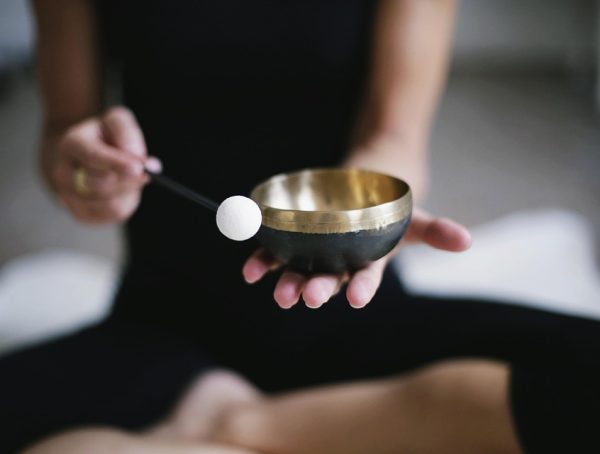Breathe In, Boost Brain: Meditation’s Role in Cognitive Performance
In our fast-paced society, where immediate results are often prioritized, the importance of mental clarity and cognitive performance cannot be overstated. Many of us are seeking effective ways to enhance our focus and memory, not to mention our overall mental well-being. While traditional methods may involve caffeine boosts or cramming sessions, a more powerful tool is quietly emerging from ancient traditions: meditation. In this article, we’ll explore the significant role meditation can play in boosting cognitive performance and provide actionable steps for incorporating it into your daily routine.
Understanding Meditation and Cognitive Performance
Meditation, often misconceived as mere relaxation, is a practice of focused attention and mindfulness. It encompasses various techniques, such as mindfulness meditation, transcendental meditation, and loving-kindness meditation. Research has revealed that consistent meditation can increase gray matter in the brain, improve emotional regulation, enhance attention spans, and even boost memory.
Studies have indicated some fascinating findings:
-
Improved Focus and Attention: One of the standout benefits of meditation is its ability to enhance concentration. Regular practitioners show significant improvements in their ability to maintain attention on tasks, which is essential in our distraction-filled world.
-
Enhanced Memory: Meditation can positively affect both working memory and long-term memory. The mindfulness aspects of meditation allow individuals to process information more effectively, leading to better recall and retention.
-
Stress Reduction: Stress is known to impair cognitive performance, while meditation, especially mindfulness meditation, can help lower stress levels. This reduction allows the brain to function optimally, leading to clearer thinking and improved problem-solving skills.
-
Greater Emotional Regulation: A clear mind is a productive mind. Regular meditation can help practitioners develop a more resilient mindset, better emotional regulation, and improved decision-making skills.
- Neuroplasticity: Meditation creates favorable conditions for neuroplasticity—the brain’s ability to reorganize itself. This adaptability is crucial for learning and cognitive growth throughout life.
Understanding the tangible benefits of meditation on cognitive performance is just one part of the journey; knowing how to integrate it into your daily life is the other.
Action Steps to Incorporate Meditation into Your Routine
Here are some actionable steps you can follow to make meditation a regular part of your routine:
1. Start Small
If you’re new to meditation, beginning with just five minutes a day can make a difference. Choose a time when you can be undisturbed, whether at the start or end of your day, and gradually build your practice.
2. Create a Dedicated Space
Designate a specific spot in your home for meditation. This can be as simple as a quiet corner with a comfortable chair or cushion. Having a defined space signals to your mind that it’s time to relax and focus.
3. Use Guided Meditations
Numerous apps and online platforms offer guided meditation sessions. These can be particularly helpful for beginners as they provide structure and techniques to enhance your practice. Popular apps include Headspace, Calm, and Insight Timer.
4. Incorporate Breathwork
One of the simplest forms of meditation is focused breathing. Spend a few minutes inhaling deeply through your nose, holding the breath for a few seconds, and exhaling slowly through your mouth. This technique can be especially grounding when you’re feeling overwhelmed.
5. Experiment with Different Techniques
There are various forms of meditation, and what works for others might not work for you. Explore mindfulness, loving-kindness, body scan, and mantra meditation to find what resonates the most.
6. Make it a Habit
To establish a meditation habit, pair it with an existing habit (known as habit stacking). If you already have a routine of morning coffee or evening wind-down, add a few minutes of meditation right before or after.
7. Be Patient and Stay Consistent
The benefits of meditation accumulate over time. Be patient with yourself and commit to a daily practice, even if it’s just five to ten minutes. Consistency is key to experiencing the cognitive advantages of meditation.
8. Join a Community
Consider joining a local meditation group or an online forum. Connecting with others can provide motivation, accountability, and different perspectives on your practice.
9. Track Your Progress
Keep a journal to log your meditation experiences and any changes in your cognitive performance. Reflecting on your journey can help reinforce the benefits you’re experiencing.
Conclusion
Meditation is more than just a tool for relaxation; it is a powerful practice that can enhance cognitive performance, emotional resilience, and overall mental well-being. By integrating meditation into your daily routine, you can cultivate a sharper mind, improved focus, and greater emotional stability.
As you embark on your meditation journey, remember that it takes time, patience, and consistency. Don’t get discouraged; every moment spent focused on your breathing is a step toward a better, more empowered you.
Finally, to inspire you on this journey, here’s a motivational quote:
"Take care of your body. It’s the only place you have to live." – Jim Rohn
If you found this content helpful, feel free to follow more tips and inspiration from Kevin on Instagram @KSteineman. Let’s embark on this path toward better mental health and cognitive performance together!
You might also like
More from Meditation
The Role of Mantras in Transcendental Meditation: A Deep Dive
The Role of Mantras in Transcendental Meditation: A Deep Dive Transcendental Meditation (TM) has garnered a significant following across the globe, …
The Science Behind Meditation: Improving Mental Health Naturally
The Science Behind Meditation: Improving Mental Health Naturally In today's fast-paced world, the pursuit of mental wellness has become paramount. Thousands …
Understanding the 7 Types of Meditation for Beginners
Understanding the 7 Types of Meditation for Beginners: A Path to Inner Peace Meditation has become a popular practice in recent …

































